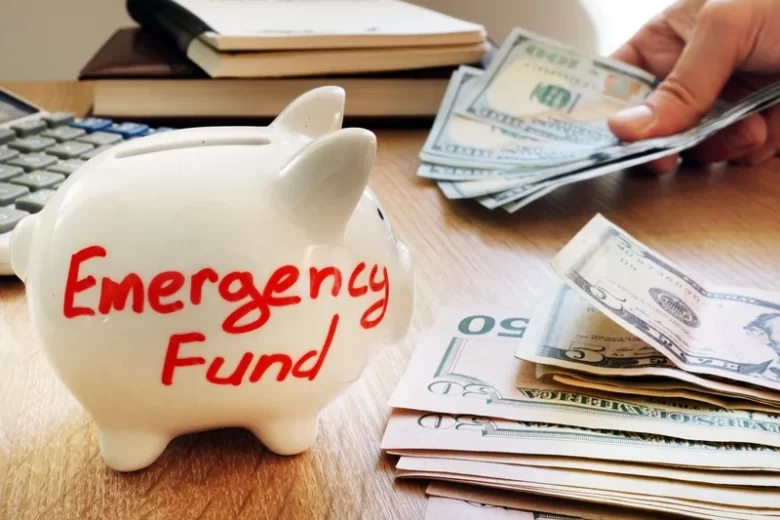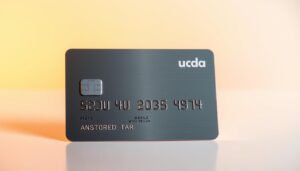In today’s unpredictable world, having a financial safety net is not only desirable; it is necessary. Life is full of unexpected twists, from medical emergencies to unexpected car repairs or a sudden job loss. Building an emergency fund is the first step to securing your financial future and ensuring you’re prepared for whatever life throws your way.
Why do you Need an Emergency Fund?
Imagine: your car breaks down and you have to spend a lot of money to repair it. Without an emergency fund, you may be forced to rely on credit cards or high-interest loans to cover costs. This can lead to a cycle of debt that is difficult to escape. An emergency fund can provide a cushion so you can pay for these unexpected expenses without going into debt.
Here are some compelling reasons why setting up an emergency fund should be a top priority:
- Peace of Mind: Knowing you have an emergency fund can give you peace of mind. You don’t have to worry about how to handle unexpected expenses because you are already financially prepared.
- Avoid Debt: An emergency fund prevents you from relying on credit cards or loans to pay for unexpected expenses, which can lead to a spiral of high-interest debt.
- Financial security: It provides financial security and ensures that you can continue to meet your financial obligations, even if you encounter unexpected setbacks.
- Seize opportunities: Having an emergency fund also means you can seize opportunities when they arise. Whether it’s a great investment opportunity or a travel opportunity for personal growth, having the financial resources will help you say yes when life presents unique opportunities.
How to Start Building an Emergency Fund
Now that you understand the importance of an emergency fund, let’s discuss how to get started:
- Set clear goals: Determine how much money you want to save in your emergency fund. A good rule of thumb is to aim for at least three to six months of living expenses.
- Create a budget: Analyze your income and expenses to identify areas where you can cut back and allocate these funds to your emergency fund.
- Automatic Savings: Set up automatic transfers from your checking account to a separate savings account for your emergency fund. This way you can be sure that you always save part of your income.
- Cut unnecessary expenses: Cut unnecessary expenses and transfer that money to your emergency fund. This may mean temporarily sacrificing certain luxuries, but the long-term benefits are well worth it.
- Increase your income: Discover ways to increase your income, such as taking on a part-time job or freelancing. Extra income can help you reach your emergency fund goals faster.
- Be patient and consistent: Building an emergency fund takes time and discipline. Be patient and stick to your savings plan.
The Importance of Maintaining an Emergency Fund
Creating an emergency fund is just the first step; maintaining it is just as important. Here’s why you should continue to cherish your financial safety net:
- Emergencies happen: life is unpredictable. Even if you build a large emergency fund, unexpected events can happen. Keeping your money well funded will help you be prepared for any situation that comes your way.
- Unemployment: A strong emergency fund can provide a lifeline if you suddenly lose your job. It can cover your living expenses while you look for a new job, easing the financial stress of tough times.
- Medical expenses: Health-related emergencies can cause financial losses. From unexpected medical bills to deductibles, a well-maintained emergency fund ensures you prioritize your health without worrying about costs.
- Home Repairs: Homes need maintenance and sometimes unexpected repairs are needed. Whether it’s a leaky roof or a faulty HVAC system, your emergency fund can cover these costs, keeping you from taking out a high-interest loan.
- Investment Opportunities: With a healthy emergency fund, you have the flexibility to seize investment opportunities that can grow your wealth. Whether you invest in the stock market or in a promising company, readily available funds allow you to take calculated risks.
- Peace of Mind: Knowing that your emergency fund is well maintained can give you peace of mind. It reduces financial stress and allows you to focus on your long-term financial goals, rather than constantly worrying about what might happen in an emergency.
Tips for Maintaining An Emergency Fund
- Review your budget regularly: Re-examine your budget regularly to ensure it meets your financial goals. Adjust your savings premium if necessary, especially if your income or expenses change.
- Avoid temptation: Your emergency fund should be reserved for real emergencies. Resist the temptation to buy non-essential items. Maintain discipline to maintain its integrity.
- Grow your contributions through a windfall: When you receive a windfall, such as a tax refund, a job bonus or a cash gift, consider allocating some of it to your emergency fund to keep it growing.
- Track your progress: Keep an eye on the growth of your emergency fund. Check your savings account regularly to see how close you are to achieving your goals.
- Replenish after use: If you need to use your emergency fund for a real emergency, make it a priority to replenish it as quickly as possible. This way you are always prepared for the next unexpected event.
- Set higher goals: As your financial situation improves, consider setting higher goals for your emergency fund. Saving on living costs for a year can provide more security.
Conclusion
In short, building and maintaining an emergency fund is a financial strategy that everyone should embrace. It is your financial safety net, providing you with security, peace of mind and the freedom to face life’s challenges. Keep in mind that emergencies can happen at any time, so the sooner you start and the more diligent you are about managing your money, the better prepared you will be for whatever life throws at you. Invest in your financial future by prioritizing your emergency fund today.
Frequently Asked Questions
1. What is an emergency fund? Why do I need an emergency fund?
An emergency fund is a savings account specifically set up for unexpected expenses, such as medical bills, car repairs, or job loss. When life brings unexpected challenges, you need one that provides financial security and avoids debt.
2. How big should my emergency fund be?
A common recommendation is to have at least three to six months of living expenses covered. However, the ideal amount may vary depending on your personal circumstances. Some experts suggest saving for up to a year.
3. How do I start building an emergency fund if I don’t have extra money?
Start small. Saving even a small portion of your income consistently can add up over time. Create a budget to reduce non-essential expenses and gradually increase your giving as your financial situation improves.
4. Where should I keep my emergency fund?
It’s best to keep emergency funds in a separate savings or money market account that you can easily access. This ensures that you have quick access to money in the event of an emergency.
5. What is a legitimate emergency for using the fund?
Legitimate emergencies include unexpected medical bills, car repairs, sudden job loss, home repairs, or other unexpected financial setbacks. Crucially, the fund should only be used for genuine emergencies and not for discretionary expenditure.



